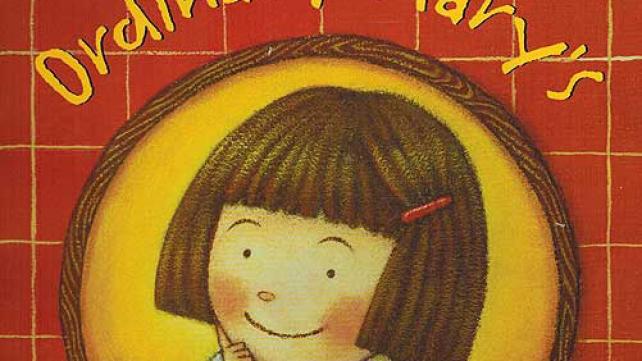
With the holiday season approaching, many Muslims look forward to using their free time to get together with family and friends. Although Thanksgiving is not part of our faith tradition, it has become common in the United States for Muslim families to take advantage of the holiday as an opportunity to reflect on gratitude. The origins of Thanksgiving are controversial, and some regard it as more of a somber day of contemplation to honor the country’s Indigenous heritage than an excuse to feast. Regardless of our take on history, it is a day off work and school routines to spend time with family, and that is certainly something to be grateful for. One of the ways that we express thanks in Islam is through giving – there is a reason why it’s known as “Thanks-giving” after all!
Emily Pearson, author of Ordinary Mary’s Extraordinary Deed, wonderfully captures the spirit of giving through her thoughtful picture book about an ordinary girl and her marvelous, good deed. The book teaches about values that are inherently Islamic in a voice that is appealing to people of all faiths. There are also plenty of diverse characters, including a Muslima hijabi named Sahar. The whimsical and colorful illustrations by Fumi Kosaka, subtle rhymes throughout, and a universal lesson earn this book a spot in the must-have category for all homes and libraries. Although the story has nothing to do with the Thanksgiving holiday, its focus on gratitude and charity makes it a great read for this time of the year.
Ordinary Mary is just a regular girl walking home from school on a regular day. There is nothing fantastic about Mary or her routine; she is so ordinary, in fact, that she could be just about anyone, including me or you. This one day, however, Mary does something different – a seemingly insignificant deed with a profound impact on her community. When she spots blueberries growing out of an ordinary bush on her way home, she stops to pick the berries and decides to leave the bushel on her neighbor’s front porch. Ms. Bishop, her neighbor, discovers the berries and is so moved by this gesture that she bakes blueberry muffins and gives them to five people whom she thinks could have left the delightful gift. The scrumptious blueberry muffins bring a smile to each recipient’s face. They are so happy that they each decide to pay it forward by helping five other people.
This action triggers a chain of events that multiplies Ordinary Mary’s one good deed into multiple acts of kindness. One paperboy decides to give the newspaper to the neighbors in their hands rather than toss them into their bushes. A gentleman pays for an elderly man’s groceries. A Muslim girl compliments a sorrowful woman to improve her mood. She, in turn, calls her son to wish him a good day. The son, who happens to be a doctor, buys balloons for all his patients. One of them helps a boy who then takes his sister to a park to play. When the two come across a homeless woman, they buy her lunch. She was so thankful that when she finds a lost wallet, she remembers their kindness and decides to return the wallet to its rightful owner. Eventually, the story comes full circle, after a woman who receives a thoughtful gift from a stranger impacted by Ordinary Mary’s good deed decides to buy presents for five other people in gratitude – one of them being her very ordinary niece named Mary. In the next to last page of the book, Pearson writes:
“Yes, Ordinary Mary’s extraordinary deed had come full circle, and on its way, it had changed the lives of every person living!”
At the end of the book, the reader gets a glimpse of how that one deed was multiplied by five over the course of 16 days to equal over 30 million good deeds! Young readers will be impressed to know how one minor deed can mean the world to so many people.
The story of Ordinary Mary and her extraordinary deed reminds me of the verse in the Quran in which Allah says:
“Whoever comes [on the Day of Judgement] with a good deed will have ten times the like thereof [to his credit], and whoever comes with an evil deed will not be recompensed except the like thereof; and they will not be wronged.”
(Surah Al-An’am, 6:160)
In another connected piece of Islamic guidance, Abu Huraira, may Allah be pleased with him, reported that Prophet Muhammad, peace and blessings be upon him, said:
“Every (good) deed of the son of Adam would be multiplied, a good deed receiving a tenfold to seven hundredfold reward.”
(Muslim)
Emily Pearson’s Ordinary Mary’s Extraordinary Deed brings these timeless lessons to life in a language that children easily understand. In its 20-year anniversary, this book, originally published in 2002, continues to inspire children and adults to engage in acts of kindness of their own and to never look down upon the smallest of actions, for we never know the influence they have. If we strive to help others, surely Allah will never allow the good to go to waste. He promises:
“As for those who believe and do good, We certainly never deny the reward of those who are best in deeds.”
(Surah Al-Kahf, 18:30)
Find Ordinary Mary’s Extraordinary Deed online, in the library, or in your favorite bookstore, and make sure to cuddle up with your children under warm blankets to read it together this holiday break.
Wendy Díaz is a Puerto Rican Muslim writer, award-winning poet, translator, and mother of six (ages ranging from infant to teen). She is the co-founder of Hablamos Islam, a non-profit organization that produces educational resources about Islam in Spanish (hablamosislam.org). She has written, illustrated, and published over a dozen children’s books and currently lives with her family in Maryland. Follow Wendy Díaz on social media @authorwendydiaz and @hablamosislam.



Add new comment